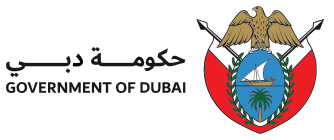Imam Malik College for Sharia and Law applies all academic and administrative standards issued by the Academic Accreditation Commission and the Government of Dubai. The college provides high-quality higher education in the fields of Sharia and law to compete with similar colleges and universities at an advanced level.
The five-year strategic planning is a policy adopted in the college. Three five-year strategic plans have been generated:
1. The First Five-Year Strategic Plan (2007-2012)
2. The second five-year strategic plan (2013-2018)
3. The third five-year strategic plan (2019-2023 )
(70%) for the included goals, programs and initiatives are achieved. The college has also developed two five-year strategic plans for scientific research, the first plan (2014-2018) and the second plan (2019-2023), which include individual and group research projects, peer-reviewed research, and initiatives for organizing conferences and supporting student research, and so on.
The undergraduate and graduate programs in the fields of Sharia, Law, Jurisprudence, Foundations, Public Law and Private Law are developed and delivered according to the following criteria:
1- Developing academic programs based on a set of learning objectives and outcomes that meet the expectations of students on the one hand, and the needs of the labor market on the other.
2- Measuring achievement of learning outcomes based on student performance, in addition to the acquired theoretical knowledge.
3- Engaging students, along with the professors, councils and academic committees, in the educational process to maintain its effectiveness.
4- Developing current learning outcomes based on the requirements of the local and regional labor market.
5- providing students with Internal and external internship to help them engage in the labor market after graduation.
6- Offering general education through some courses that introduce the cultural diversity of the era of globalization, to improve student skills of creative thinking and innovation.
7- Promoting academic activities accompanied with the academic courses and taking them into consideration to measure learning outcomes, especially the moot court activity.
8- Encouraging students to conduct research in groups and carry out projects.
9- Instructing students to write theses on emerging issues in the fields of Sharia and law in accordance with the needs of society.
10- Providing printed library collections and databases that meet needs of professors and scholars, and developing them consistently.
11- Providing the best electronic infrastructure and advanced electronic communication.
12- Adopting of strict procedures for performance evaluation carried out by employees, students, and employers of graduates.13- Organizing various activities that engage students in the college community and activate the role of student councils.
14- Making academic partnerships with local and international universities to exchange experience with external academic institutions.
15- Developing programs for community service and volunteer work.


